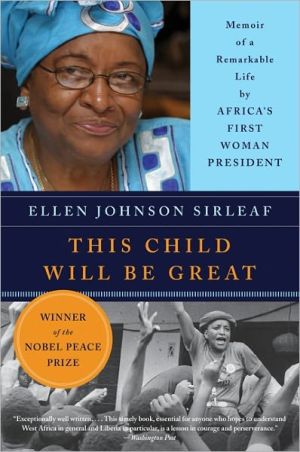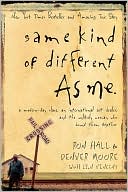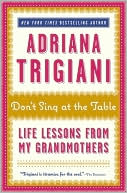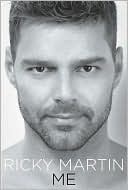This Child Will Be Great: Memoir of a Remarkable Life by Africa's First Woman President
In January 2006, after the Republic of Liberia had been racked by fourteen years of brutal civil conflict, Ellen Johnson Sirleaf—Africa's "Iron Lady"—was sworn in as president, an event that marked a tremendous turning point in the history of the West African nation.\ In this stirring memoir, Sirleaf shares the inside story of her rise to power, including her early childhood; her experiences with abuse, imprisonment, and exile; and her fight for democracy and social justice. This compelling...
Search in google:
In January 2006, after the Republic of Liberia had been racked by fourteen years of brutal civil conflict, Ellen Johnson Sirleaf Africa's "Iron Lady" was sworn in as president, an event that marked a tremendous turning point in the history of the West African nation. In this stirring memoir, Sirleaf shares the inside story of her rise to power, including her early childhood; her experiences with abuse, imprisonment, and exile; and her fight for democracy and social justice. This compelling tale of survival reveals Sirleaf's determination to succeed in multiple worlds: from her studies in the United States to her work as an international bank executive to her election campaigning in some of Liberia's most desperate and war-torn villages and neighborhoods. It is also the story of an outspoken political and social reformer who, despite danger, fought the oppression of dictators and championed change. By sharing her story, Sirleaf encourages women everywhere to pursue leadership roles at the highest levels of power, and gives us all hope that, with perseverance, we can change the world. The Washington Post - Alexandra Fuller …exceptionally well written, a true story that seems as much a thriller as it does the remembrances of an ambitious and brave woman…This timely book, essential for anyone who hopes to understand West Africa in general and Liberia in particular, is a lesson in courage and perseverance. This reader finished it hoping that the rest of Africa's troubled nations will find their own versions of "Mama Sirleaf."
This Child Will Be Great LP\ Memoir of a Remarkable Life by Africa's First Woman President\ Chapter One\ The Beginning\ When I was just a few days old, an old man came to visit my parents, to see the new baby and to offer his good wishes, as people did both then and now in my country and everywhere. My mother brought the old man into the room where I lay kicking and cooing on the bed. As the story goes, the old man took one look at me and turned to my mother with a strange expression on his face.\ "Oh, Martha," he said. "This child shall be great. This child is going to lead."\ My mother and sister and I used to laugh whenever my mother told this story. We would laugh and laugh and laugh, because at many of the junctures in which she recalled the words of the wise old man my life seemed anything but great. Perhaps I was watching all my friends go off to college abroad while I stayed at home in Monrovia, trapped with an abusive husband, four young sons, and no future in sight. Perhaps I was struggling to pursue my education, build my career, and divorce that husband without losing everything I had. Or perhaps I was being hauled off to prison by order of my nation's president—or maybe even plotting an escape into exile to save my life.\ "Where's all this greatness that was predicted?" my mother would ask. Sometimes she laughed, sometimes she cried. Always she prayed. "Where's that old man now?"\ Over the years and as the path of greatness unfolded, whenever I reflected on the prophecy of the old man, my scientific orientation of self-determination would clash with the Presbyterian teachings of predestination I hadreceived.\ Which one, I have long wondered, is the way life really is?\ Early on during my historic 2005 campaign for the presidency of Liberia, rumors began to circulate about my ethnicity. My detractors began whispering that I was an Americo-Liberian, a descendant of one of those first American-born founders of our land—and thus a member of the elite class that had ruled our nation for long.\ This was an explosive charge. Given the historic cleavage in our society and the long-standing divide between the elite settler and indigenous populations, many Liberians wanted nothing to do with another Americo-Liberian president. And although I was well known in my country—so well known that most people, including the swarms of children who would come out to greet me as I campaigned, simply called me "Ellen"—still, there was danger that the rumor would find traction. It could not be brushed off or ignored, not if I wanted to win. It was crucial that the people of Liberia know my background was not unlike their own. They needed to know where I was coming from.\ In truth, my family exemplifies the economic and social divide that has torn our nation. But, unlike many privileged Liberians, I can claim no American lineage.\ My paternal grandfather was a Gola chief of great renown. His name was Jahmale, sometimes called Jahmale the Peacemaker, and he lived, along with his eight wives, in the village of Julejuah, in Bomi County. Jahmale used to travel from his home village to the ocean, a distance of some twelve or fifteen miles that, in those days, took months and months of slow walking through the dense forests of coastal Liberia. During his travels he learned to speak the languages and dialects of the many peoples whose path he crossed and so became a kind of negotiator when troubles erupted between the indigenous people and the settlers in Monrovia.\ In this way his reputation grew, and it was because of this renown that my grandfather was sometimes visited by Hilary Wright Johnson, Liberia's eleventh president. Johnson was the first president of Liberia to be born in our country. He was also the son of Elijah Johnson, one of the original settlers.\ At that time there were few roads in Liberia and none at all outside the capital. So when the president traveled into the hinterland to visit villages, he, along with his entourage, would be carried about in hammocks, welcomed with food and dance and celebration and perhaps the gift of a young woman as a wife. The president in turn brought excitement, gifts, and connection to the country's power base back in Monrovia. It was President Johnson who encouraged Jahmale to send my father to the city as a ward.\ As with many aspects of Liberian society, the ward system, its history and legacy, is not simple to parse. Its origins seem to lie in a complex combination of tradition, expediency, and need; the motivations of its participants varied greatly, as did the way in which it was executed.\ In the simplest explanation, the ward system flourished in early Liberia because it met the settlers' crucial need for cheap labor. Those early transplanted families, not having enough children themselves, needed help with the heavy housework of the nineteenth century: hauling water, collecting firewood and coal, cooking, cleaning, and tending crops.\ At the same time, it was, in many villages, an African tradition for chiefs and wealthier villagers to have guardianship of children whose parents were either dead or too poor to care for them. The extended family system in Africa assumes that everyone is his brother's keeper; it is one of our strengths. Likewise, it was common at the time for chiefs who formed alliances with other tribes or chiefs to offer women as wives and children as wards to validate the agreements.\ The American Colonization Society, recognizing how the tradition could be used to spread Christianity among the indigenous population, encouraged the settlers to take local children into their homes. In many cases these young people, once accepted into the family, were treated equally and given the same duties, responsibilities, and opportunities as the family's own biological offspring. Often settlers grew so fond of their wards that they provided for them in their wills, as did Samuel C. Coker, a settler farmer from Bensonville, who gave generous grants of lands to three of his wards—provided, he wrote, they remain "among the civilized elements."\ This Child Will Be Great LP\ Memoir of a Remarkable Life by Africa's First Woman President. Copyright (c) by Ellen Sirleaf . Reprinted by permission of HarperCollins Publishers, Inc. All rights reserved. Available now wherever books are sold.
Prologue 11 The Beginning 72 Childhood Ends 233 America Again 434 The Tolbert Years 655 The 1980 Coup 936 Climbing the Corporate Ladder 1137 The 1985 Elections 1198 The Attempted Coup 1379 Escape 15510 Equator Bank and the Charles Taylor War 16511 ECOMOG 18712 UNDP and Rwanda 19513 War Some More/1997 Elections 20514 Self-imposed Exile, or Exile Again 22115 Accra and the Transition 23516 Becoming President 24517 Inauguration Day 26918 The First Hundred Days 27519 Some Challenges Ahead 29120 The Future 309Appendix: Inaugural Speech by Ellen Johnson Sirleaf 317Acknowledgments 335Bibliography 337Index 339
\ Helene CooperThis is the incredible story of a woman who spent her life talking tough to the lunatics surrounding her. It is an accessible walk through contemporary Liberian history, told by someone who was somehow always in the center of the political storm\ —The New York Times\ \ \ \ \ Alexandra Fuller…exceptionally well written, a true story that seems as much a thriller as it does the remembrances of an ambitious and brave woman…This timely book, essential for anyone who hopes to understand West Africa in general and Liberia in particular, is a lesson in courage and perseverance. This reader finished it hoping that the rest of Africa's troubled nations will find their own versions of "Mama Sirleaf."\ —The Washington Post\ \ \ Publishers WeeklyForbes lists Sirleaf, the 23rd president of Liberia and the first elected female president on the African continent, among the 100 Most Powerful Women in 2008. In and out of government, in and out of exile, but consistent in her commitment to Liberia, Sirleaf in her memoir reveals herself to be among the most resilient, determined and courageous as well. She writes with modesty in a calm and measured tone. While her account includes a happy childhood and an unhappy marriage, the book is politically, not personally, focused as she (and Liberia) go through the disastrous presidencies of Samuel Doe and Charles Taylor. Sirleaf's training as an economist and her employment (e.g., in banking, as minister of finance in Liberia, and in U.N. development programs) informs the perspective from which she views internal Liberian history (e.g., the tensions between the "settler class" and the indigenous people) and Liberia's international relations. Although her focus is thoroughly on Liberia, the content is more widely instructive, particularly her account of the role of the Economic Community of West African States. (Apr.)\ Copyright © Reed Business Information, a division of Reed Elsevier Inc. All rights reserved.\ \ \ \ \ Library JournalAfter 14 years of civil war, corruption, and economic deterioration, the people of Liberia resurrected their country's battered democracy by electing Sirleaf as Africa's first woman president. In her 2006 inaugural address, Sirleaf made a promise to her people: "We are making our beloved Liberia home once again." In this memoir, the woman known to her compatriots as "Ma Ellen" shows how her life is entwined with her country's story. She vividly describes her educational awakening after escaping an abusive marriage and subsequently being separated from her children. Her education transformed her into a successful, self-sufficient woman able to move from Harvard to the Liberian finance ministry, Citicorp, and the UN. Yet central to her own story is the political situation in her homeland, as a class-stratified society made way for the Samuel Doe military coup and the brutal civil war waged by Charles Taylor. Liberia's "Iron Lady" raised her voice in defiance of violence and corruption and ultimately transformed the government. Her autobiography is a testament to the remarkable impact of ambition when it is used for public good. Highly recommended.\ —Veronica Arellano\ \ \ \ \ \ Kirkus ReviewsA carefully written memoir of life in Liberia, "a wonderful, beautiful, mixed-up country struggling mightily to find itself."So writes the country's sitting president, who came to office in an improbably constitutional way. Sirleaf's bloodline is instructive. She is part European, her maternal grandfather a German expelled from the country during World War I as a move to prove Liberia's loyalty to the United States; her mother was "a fair-skinned child with long, wavy hair," not the easiest thing to be in the ethnically torn nation. Her father was "tall, brown-skinned, and stylish . . . a son of a Gola chief from Bomi County." Through luck and hard work, she attained a fine education at the College of West Africa. However, she notes, the view of her nation that she took away was the Americo-Liberian one, for Liberia had been settled in part by repatriated slaves who did not always fit in-and whose descendants still do not. After studying in America, she became an economic advisor to Liberia's president in the late 1970s, a time when the economy began to falter, which in turn undid the near century of comparative political calm the country had enjoyed. The next two decades saw a coup during which Sirleaf was imprisoned, then the onset of a civil war that "killed a quarter of a million of our 3 million people and displaced most of the rest." That she survived the succeeding regimes is testimony to her diplomatic skill and good fortune. Recounting these events and her rise to power, Sirleaf contextualizes contemporary events in the bigger picture. One of Africa's chief problems, she writes, is debt, and one way to settle debt in the days of the Cold War was to align with the United States orthe Soviets, at which point "the money flowed in"-and the blood began to flow out, which explains much recent history. Of interest to students of modern Africa, but less well written than Helene Cooper's remarkable memoir The House at Sugar Beach (2008), which addresses some of the same events.\ \ \ \ \ Washington Post"Exceptionally well written, a true story that seems as much a thriller as the remembrances of an ambitious and brave woman. . . . This timely book, essential for anyone who hopes to understand West Africa in general and Liberia in particular, is a lesson in courage and perserverance."\ \ \ \ \ Booklist"An inspiring inside look at a nation struggling to rebuild itself and the woman now behind those efforts."\ \ \ \ \ New York Times Book Review"This is the incredible story of a woman who spent her life talking tough to the lunatics surrounding her. It is an accessible walk through Liberian history, told by someone who was somehow always in the center of the political storm."\ \








